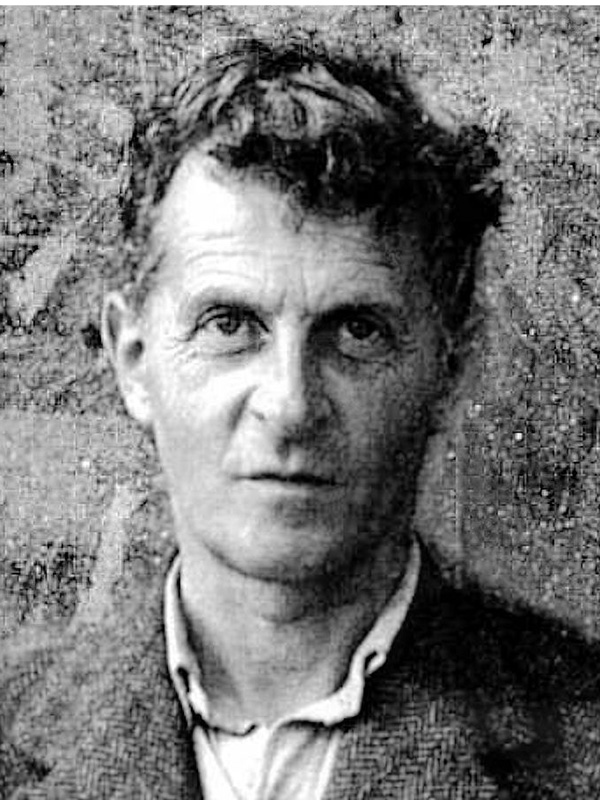Ludwig Wittgenstein
New understanding of language
Whereof one cannot speak, thereof one must be silent.
We should not leave this all-important theme without at least mentioning the philosophy of language, and Wittgenstein – and his closely confluent insights.
We let the above epigram from the ending of Tractacus represent Wittgenstein's message to us.
When at the beginning of Philosophical Investigations Wittgenstein lets us listen to a mason issue commands to his assistant in a highly reduced language ("block", "pillar", "slab" and "beam"), what the mason, and Wittgenstein, are really telling us is that the words find their meaning in a specific practical activity or "language game". And that when we take them out of that context and stretch their meanings by (for example) speculating about the nature of reality, then their meanings tends to be lost. And with them, also the meaning of our discourse.
It might seem that we are forever stuck in a paradigm; but there's a way out – by stepping "through the mirror (see Federation through Images)!
Wittgenstein's ideas can still be considered controversial, and rightly so – they challenge the very roots of our paradigm, of our academic "language game". An illustration is a lively little book titled "Wittgenstein's Poker". The book zooms in on specific "ten minutes in the history of philosophy", where Karl Popper (who visited Cambridge and gave a talk) and Wittgenstein are in a heated discussion – at the end of which Wittgenstein demonstratively throws down the (fire) poker he was holding in his hand while gesticulating, and storms out of the room.

